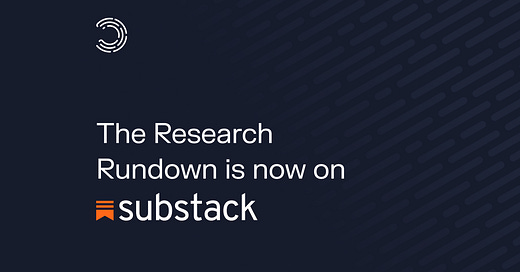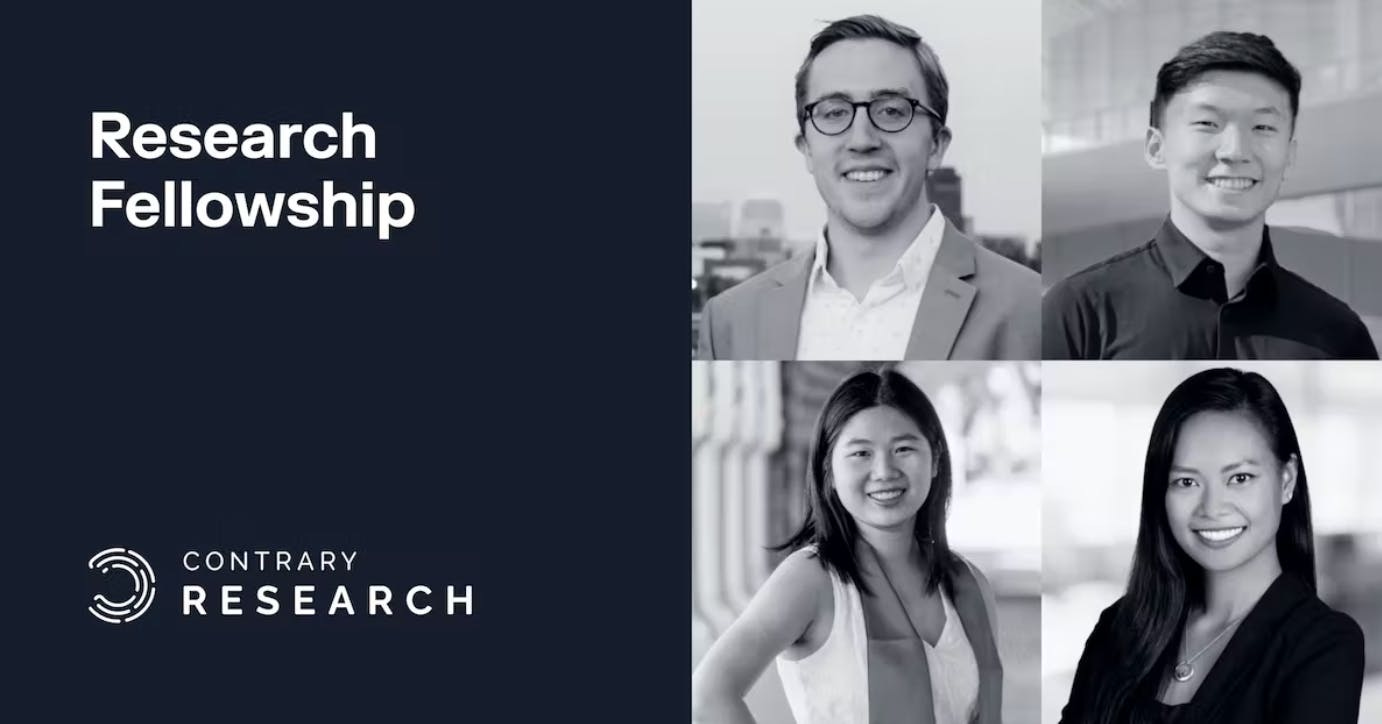Contrary Research Rundown #38
Renewed enthusiasm for nuclear fusion, and new memos on Alchemy, Pinecone and more
Research Rundown
Welcome to the first edition of the Contrary Research Rundown on Substack! Let’s dive right in for this week’s topic.
Nuclear fusion could become the most impactful invention in human history. Capturing the same energy source that powers our solar system in a tube is a remarkable feat. Achieving fusion at scale will equate to recreating the Sun's natural power, a process that has been the subject of reverence for centuries.
Our fusion process could be more efficient than the Sun due to the faster rate, higher temperatures, and smaller area required. The temperatures needed to achieve fusion on Earth are ten times hotter than the Sun's core. Fusion technology offers the potential for near-infinite energy abundance, an inexhaustible fuel supply, and the ability to create new elements. Such a revolutionary technology could reshape human life on Earth. Unlocking fusion's many benefits is a daunting challenge, but its future potential is mind-blowing. For a deep dive into the promise of nuclear fusion, check out our essay on the Promise of Fusion in Foundations & Frontiers.
Fusion’s potential to deliver energy abundance has never been clearer. Since August 2021, developers in the US, Canada, and Europe have seen a surge of activity and excitement after scientists at Lawrence Livermore National Laboratory were able to reach net gain; i.e., produce more energy through a fusion reaction than was put in. That’s why the fusion space is seeing the emergence of private companies vying to bring fusion technology to market. Recent years have seen a surge in private investment in fusion reactor research, with Jeff Bezos, Sam Altman, Peter Thiel, Bill Gates, and Marc Benioff among the prominent players. According to the Fusion Industry Association in Washington, D.C., private funding exceeds $5 billion as of 2023 and 75% of the total funding in the space has happened since 2021, with seven nuclear fusion companies having raised over $200 million.
For more on leading players in the fusion space, check out our memo on Helion Energy, a company which aims to be “first to fusion.”
Alchemy is a developer platform that offers the infrastructure needed to build, scale, and rapidly iterate on blockchain applications. To learn more, read our full memo here.
VTS is a real estate software company bringing landlords, brokers, and tenants together to make deals. To learn more, read our full memo here.
Pinecone is a vector database where developers can store relevant contextual data for LLMs. To learn more, read our full memo here.
Mews is a hotel property management system that helps simplify hotel operations so properties can focus on their guests. To learn more, read our full memo here.
Tim Cook announced the Apple Vision Pro, a headset controlled with just the eyes, hands, and voice, available for $3,499 in the US in 2024
Carbon Health launched a GPT-4 tool to create medical records, using Amazon Transcribe Medical for transcription.
Spotify cut ~200 jobs, or 2% of its staff, at its podcast unit, combined Parcast and Gimlet into a renewed Spotify Studios and reported 100M+ podcast listeners.
An interview with sci-fi writer Ted Chiang on AI's limits, how current machines are not conscious, his 2010 novella The Lifecycle of Software Objects.
An interview with Grab CEO, who expects the company to break even in 2023 with $2.2B in revenue, on his super-app vision, social impact, and more.
The SEC sued Binance and CEO Changpeng Zhao, accusing the company of mishandling billions in customer funds and lying to regulators and investors.
The SEC sued Coinbase, alleging the exchange has acted as an unregistered broker since at least 2019 and broke the rules.
Sequoia plans to split into three firms, Sequoia in the US and Europe, HongShan in China, and Peak XV in India and Southeast Asia.
Automattic launched Jetpack AI Assistant for WordPress and Jetpack-powered sites, letting users generate content, and translate text into 12 languages.
Apple acquired Mira, which makes AR headsets for companies and the US military; the startup had raised ~$17M and was once advised by Jony Ive.
An interview with Salesforce CEO Marc Benioff and COO Brian Millham on their relationship, and repairing company culture.
Google Cloud partnered with Mayo Clinic to test a service for making AI chatbots and search apps; Mayo created a tool that helps staff find patient data.
Google updated how Bard handles math, coding questions, and string manipulation.
WhatsApp announced Channels, a one-to-many broadcast tool “a private way to follow what matters,” and plans to add payment services in the future.
Microsoft is bringing OpenAI’s GPT-4 AI model to US government agencies.
DeepMind repurposes game-playing AIs to optimize code and infrastructure.
UK Prime Minister Rishi Sunak plans to host an AI summit in the fall, saying the UK would be “well-placed” to convene discussions.
A look at what the SEC and crypto industry learned from the SEC's ICO enforcement actions in 2017, and why the SEC is targeting only select tokens.
Adobe began rolling out its generative AI Firefly tool to businesses and plans to offer “full indemnification” against copyright lawsuits over its output.
Mark Zuckerberg shared with employees Meta's plan to add generative AI to its products, such as Messenger, WhatsApp, and Instagram.
Contrary Research Fellowship
At Contrary Research our vision is to cover hundreds of companies. We can't do it alone, nor would we want to. We focus on bringing together a variety of different perspectives.
That's why we're opening applications for our Research Fellowship. In the past we've worked with software engineers, product managers, consultants, and more. If you're interested in researching and writing about tech companies, apply here!












